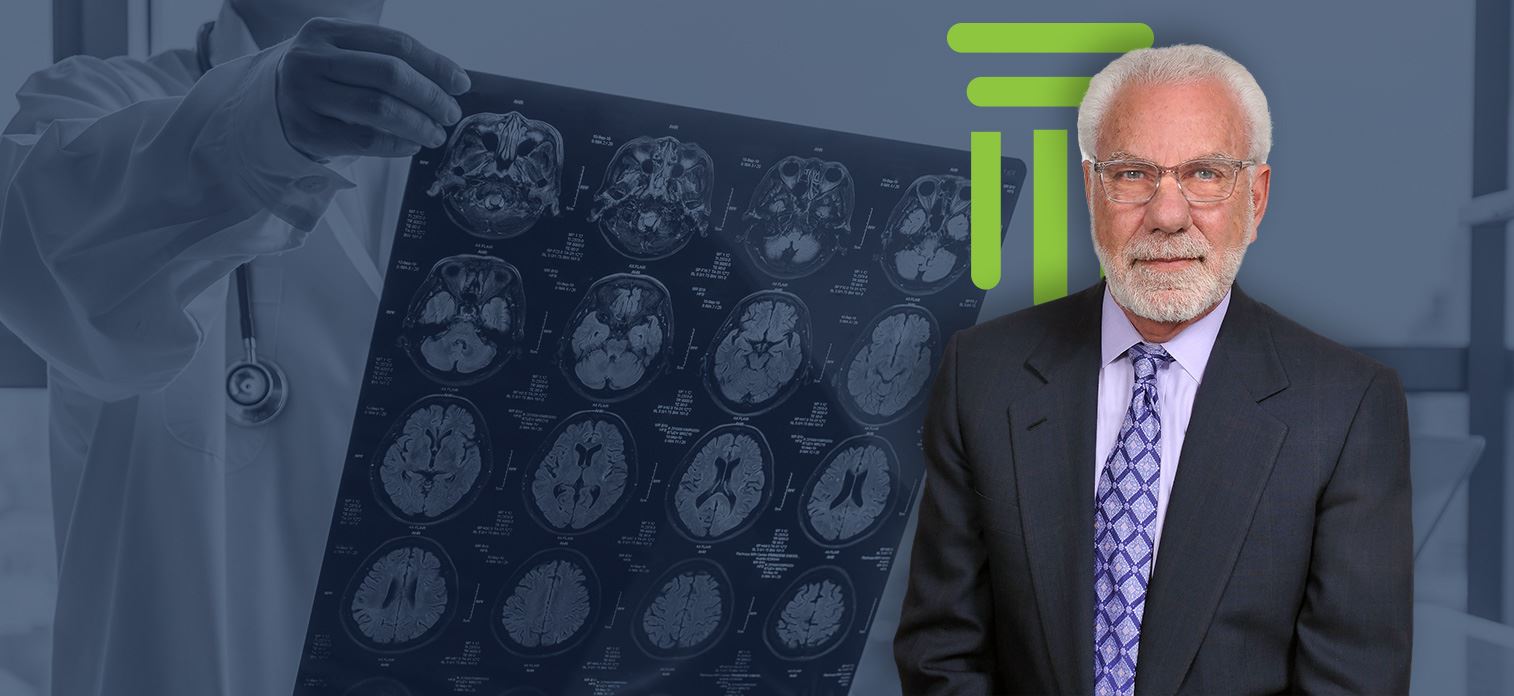
-
 Traumatic Brain Injury
Traumatic Brain Injury
Florida Traumatic Brain Injury Lawyer
Lawyers Representing Victims of TBI in Tampa, St. Petersburg, & Beyond
Traumatic brain injuries (TBIs) have recently gained significant attention due to the growing number of NFL players reporting the debilitating effects of these injuries. Extensive research now links contact sports, particularly tackle football, to TBIs, highlighting the severe and long-lasting brain damage that can result from aggressive head-to-head contact.
While the spotlight has been on the NFL, it's crucial to remember that TBIs can occur in various situations, even seemingly mundane ones like car accidents or slip-and-falls. These injuries can have a profound impact on your life and well-being, affecting your physical and cognitive abilities, as well as your emotional and financial stability.
If you or a loved one has suffered a TBI due to someone else's negligence, you don't have to face the aftermath alone. Our team at The Florida Law Group can help. We can provide informed guidance and stalwart representation throughout your case, always endeavoring to secure the maximum compensation available based on the losses associated with your accident.
To schedule a free consultation with a Florida traumatic brain injury attorney, call (833) 899-0310 today.


Our Results
Put Four Decades of Experience On Your Side
-
$1,250,000 Wrongful Death Motorcycle Crash
-
$5,000,000 Automobile Rear End Collision
-
$1,150,000 Automobile Rear End Collision
What Causes Traumatic Brain Injuries?
A traumatic brain injury, or TBI, is a serious injury with potentially lasting effects. It occurs when a violent blow or jolt to the head disrupts the brain's normal function. Children and older adults are particularly vulnerable to these injuries, but anyone can experience a TBI.
When a person suffers a strong blow to the head, the impact can cause the brain to collide with the skull, leading to bruising, bleeding, or even tearing of brain tissue. In severe cases, a fractured skull can pierce the brain, causing catastrophic damage.
Head injuries that can lead to TBIs fall into three main categories:
- Crushing injuries: These occur when the skull is compressed between two objects, injuring the brain.
- Penetrating brain injuries: Typically resulting from a cracked skull, these injuries involve direct impact, bruising, or puncture of the brain.
- Closed head injuries: The most common type, and often the most difficult to recognize, closed head injuries occur when a sudden force causes the head to move rapidly, violently slamming the brain against the skull.
Common Symptoms of a Traumatic Brain Injury
Even if symptoms appear mild, it's crucial to seek medical attention after any head injury. Concussion symptoms can be subtle and may not manifest immediately, sometimes appearing hours or even days later.
Beyond the initial concussion, be vigilant for other potential signs of a TBI:
- Persistent headache that doesn't subside
- Nausea and vomiting
- Confusion, slurred speech, difficulty forming sentences
- Difficulty focusing or blurred vision
- Loss of balance or coordination
- Memory loss or difficulty concentrating
- Sudden mood swings or personality changes
If you or someone you know experiences any of these symptoms following a head injury, seek medical evaluation immediately. Early diagnosis and treatment are critical for managing TBIs and minimizing long-term complications. Once you get the care you need, call our team, and we can begin building a case.
Long-Term Effects of a Traumatic Brain Injury
The long-term consequences of a traumatic brain injury can vary widely, and every case is unique. Some individuals may experience relatively mild effects, while others may face severe and life-altering challenges. However, it's important to emphasize that any injury to the brain is serious and should not be taken lightly.
Common long-term risks associated with TBIs include:
- Seizures
- Early onset of Alzheimer's disease or other forms of dementia
- Significant memory loss and cognitive impairment
- Personality changes
- Emotional and behavioral difficulties
While some TBIs can be treated and managed effectively, many have lasting consequences that can significantly impact an individual's quality of life. The effects may unfold gradually, and sadly, for many TBI victims, these changes are irreversible.
The emotional and psychological impact of a TBI can be just as devastating as the physical limitations. Depression, anxiety, and feelings of isolation are common as individuals struggle to cope with the changes in their abilities and personality. These changes can also strain relationships with loved ones, creating a ripple effect of heartache and loss.
What If a Head Injury Appears Minor?
While minor head injuries are common and usually resolve themselves on their own, it's important to remain vigilant for signs of a more serious problem. Even a seemingly mild bump or blow can sometimes lead to lasting complications.
If you experience any of the following symptoms after bumping your head, seek medical attention promptly:
- Speech problems or difficulty understanding others: This could indicate damage to the areas of the brain responsible for language and communication.
- Loss of balance or difficulty walking: This may suggest an injury affecting the cerebellum or other areas involved in coordination and movement.
- Disorientation or memory loss: Confusion, difficulty remembering recent events, or feeling lost could indicate a concussion or other brain injury.
- Loss of consciousness: Even a brief loss of consciousness is a serious sign and requires immediate medical evaluation.
- Vision problems: Blurred or double vision may signal damage to the optic nerve or visual processing areas of the brain.
- Extreme drowsiness or inability to be awakened: This could indicate a serious brain injury and necessitates urgent medical care.
- Insomnia: Difficulty falling or staying asleep can be a lingering symptom of a concussion or TBI.
- Clear fluid or blood from ears or nose: This could indicate a skull fracture or other serious injury.
- Vomiting: Repeated vomiting can be a sign of increased pressure within the skull.
- Severe or persistent headaches: A headache that doesn't improve with rest or over-the-counter pain medication warrants medical attention.
Remember, these symptoms may not appear immediately after a head injury. It's crucial to monitor yourself or your loved one for any changes in behavior or physical condition in the days following the injury. Never underestimate the potential impact of a head injury, even if it seems minor at first. If you have any concerns, err on the side of caution and seek professional medical advice.

Meet Our Team
-
 Chris Limberopoulos Founder and CEO
Chris Limberopoulos Founder and CEO -
 Steve Rawls Trial Group Litigation Manager
Steve Rawls Trial Group Litigation Manager -
 John C. Distasio Trial Group Team Leader
John C. Distasio Trial Group Team Leader -
 Nick Brady Trial Group Team Leader
Nick Brady Trial Group Team Leader -
 Dennis Hudson Trial Group Team Leader
Dennis Hudson Trial Group Team Leader -
 Maria B. Catsikopoulos Managing Prelitigation Attorney
Maria B. Catsikopoulos Managing Prelitigation Attorney -
 Craig Whisenhunt Trial Group Team Leader
Craig Whisenhunt Trial Group Team Leader -
 Ashley Van Dyke Managing Case Manager
Ashley Van Dyke Managing Case Manager -
 Rochelle Chandler Assistant Firm Administrator and Executive Assistant
Rochelle Chandler Assistant Firm Administrator and Executive Assistant -
 Danelis Jimenez Case Manager
Danelis Jimenez Case Manager

Hear It From Our Clients
-
"Something you can guarantee Chris will go hard for his client, and never settle for less!"My husband was in a car accident, Chris and his team has worked hard for him every step of the way while my husband was dealing with a lot of stress and depression do to his back and neck injuries.- Kimberly
-
"I could not have asked for better care."I had a very bad accident and was referred to Kevin, Chris and The Florida Law Group. I could not have asked for better care. I am very happy with the job they did for me and I want to thank them for working so hard on my case.- Sarah
-
"We were very happy and have sent many of our friends who have needed a lawyer to them."
My wife had a serious car accident and the lawyers at The Florida Law Group recovered a large cash award for her. We were very happy and have sent many of our friends who have needed a lawyer to them.
- Robert -
"My wife had a serious car accident and the lawyers at The Florida Law Group recovered a large cash award for her."We were very happy and have sent many of our friends who have needed a lawyer to them.- Robert
-
"The whole staff is considerate. From the time you walk around."Constantly had the chance to tune in. Also, Checking up dealing with this issue. I understand where to send my dearest associates. Thankful to you such an incredible sum for everything.- Yadiel E.
-
"They did such a great job. Their communication is excellent. It was easy to pick up the phone and call whoever I needed to talk to."They are extremely professional. I worked with Courtney and she did such a fantastic job getting the job done. I highly recommend the firm.- Joseph W.
-
"I chose this firm because of the five stars."John is Extremely proficient and an outstanding Attorney that you have at your law firm in fact he is one if not the best attorney that I have ever had to work with I am grateful for John and Michelle for all of their efforts.- Roland
-
"I wouldn't trust anyone else on my side that's for sure!!!"This is like family since the second of my accident until now its always been family. All the staff from the office to the doctor to drivers they make sure each one is just right for you during this amazing!- Jose

Stalwart TBI Attorneys in Florida
A traumatic brain injury (TBI) can leave a devastating impact, affecting not just your physical and cognitive abilities but your entire life. It can disrupt your career, strain relationships, and trigger emotional turmoil, all while mounting medical bills create a financial burden.
At The Florida Law Group, we understand the profound challenges you face after a TBI. Our team of compassionate and experienced attorneys is here to provide the support and legal guidance you need during this difficult time.
Floridians choose The Florida Law Group for numerous reasons, including:
- Proven track record: We have recovered over one billion dollars in compensation for our clients, demonstrating our effectiveness and commitment to achieving justice.
- A history of excellence: With our team led by a board-certified trial specialist, we have consistently earned accolades from prestigious organizations, including ® and Super Lawyers®.
- Contingency fee basis: Our services are offered on a contingency fee basis, meaning you do not pay our fee unless we recover compensation.
- Extensive experience: We boast over four decades of combined experience, equipping us with the knowledge and skills necessary to navigate complex personal injury and medical malpractice cases.
- National recognition: Our consistent victories have earned us a spot in the Multi-Million Dollar Advocates Forum®, a distinction held by fewer than 1% of U.S. lawyers.
The journey to recovery is often challenging, but every step forward is a testament to your strength and resilience. Surround yourself with supportive loved ones, seek out resources, and trust in the process of healing. With the right guidance and determination, brighter days lie ahead. Your friends at The Florida Law Group are ready to stand beside you, advocate for your rights, and help you reclaim the life you deserve.
Don't let a TBI derail your life. Contact us online or call (833) 899-0310 today to schedule a free case consultation with a Florida traumatic brain injury attorney at The Florida Law Group.
-
A Proven Record of SuccessSince our founding in 1984, we have recovered hundreds of millions of dollars for our clients through settlements and at trial.
-
Personalized Service
Tailored to YouWe are not a “mill” law firm featuring “case managers” instead of lawyers; we are lawyer-driven, lawyer-managed, and lawyer committed to practicing law at the very highest level. -
Multi Million-Dollar RecoveriesWe are proud of our success in obtaining million-dollar recoveries in our cases and we are not accustomed to settling for anything less than the very best for our clients.
-
Over Four Decades of Distinguished ExperienceOur Senior Attorneys, Chris Limberopoulos and Steve Rawls, have been recognized as Florida Superlawyers since its inception in 2008. In addition to many other awards, The Florida Law Group is AV Preeminent rated by the prestigious Martindale Hubbel Attorney Directory.






















